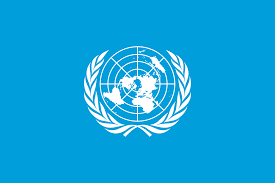
TWO United Nations (UN) agencies have combined forces to integrate sexual and reproductive health rights as they to address the interconnected needs of Zimbabweans.
The joint partnership by UNFPA and WFP will cover areas such as family planning, prevention of gender-based violence and food and nutrition security in food assistance activities.
Speaking at the signing ceremony of a memorandum of understanding (MoU) between the two UN agencies on Friday last week, UNFPA country representative Miranda Tabifor said the event marked a significant step forward in their collective efforts to address the needs of the people they serve in the country.
“This marks a significant step forward in our collective efforts to address the interconnected needs of the people we serve in Zimbabwe. As outlined in this MoU, UNFPA, as the lead UN agency in sexual and reproductive health rights, is committed to ensuring every pregnancy is wanted, every childbirth is safe and every young person’s potential is fulfilled.”
“We recognise that these goals cannot be achieved in isolation. This partnership with WFP, as the UN’s frontline agency in the fight against hunger and malnutrition, allows us to leverage our respective strengths and expertise for greater impact. This agreement establishes a framework for collaboration that integrates sexual and reproductive health and rights, including family planning, prevention of gender-based violence and food and nutrition security into food assistance activities,” she said.
Through this agreement, UNFPA will support the provision and integration
of maternal, newborn, family planning, HIV, and gender-based violence services through their partners, including the Health and Child Care ministry and the Zimbabwe National Family Planning Council.
“We will also support training of food distribution stakeholders in protection from sexual exploitation and abuse, gender-based violence, risk mitigation, and safe referrals. This collaboration reflects our shared commitment to the Sustainable Development Goals, particularly Goal 2 on Zero Hunger, Goal 3 on Good Health and Wellbeing and Goal 5 on Gender Equality.”
- COP26 a washout? Don’t lose hope – here’s why
- Under fire Mnangagwa resorts to Mugabe tactics
- How will energy crunch transition impact transition to renewables?
- COP26 a washout? Don’t lose hope – here’s why
Keep Reading
“We believe that by working together, we can support the Government of Zimbabwe in adopting a more holistic and integrated approach to these critical services,” Tabifor said.
Barbara Clemens, WFP Zimbabwe representative and country director, said by joining forces, they are committing to reduce duplication, improve efficiency and harness each agency’s strengths—WFP’s reach and operational footprint and UNFPA’s expertise in sexual and reproductive health rights.
“Our partnership does not operate in a vacuum. As UN agencies, our job is to support national efforts, align with national priorities and reinforce and capacitate government systems. Through this MoU, we aim to work even more closely with ministries such as Health and Child Care, Public Service, Labour and Social Welfare and Women’s Affairs, ensuring that our joint interventions are relevant, timely and
impactful.”
“The secretary-general spoke about building a UN that is more nimble, more efficient and better aligned with today's realities. This partnership reflects that call. It is part of a broader shift from fragmented interventions to integrated service delivery, from reactive programming to
anticipatory
action, and from institutional convenience to community impact.
Let us use this moment to recommit ourselves to the power of collaboration within the UN family and across government, civil society, and communities. When we work together, we go further,” she said.










